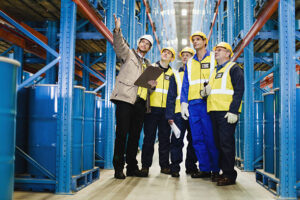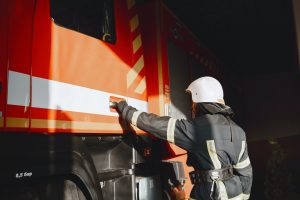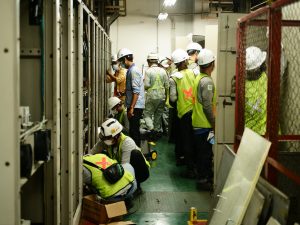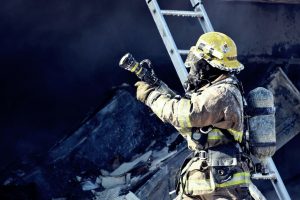Industrial operations, particularly in Nigeria’s oil, gas, petrochemical, and power sectors operate in high-risk environments where the consequences of an undetected gas leak or fire can be catastrophic. Implementing reliable fire and gas detection systems Nigeria is not just about compliance; it is about preserving lives, safeguarding assets, and ensuring uninterrupted productivity.
At SOC Energy Services Ltd, we integrate certified detection technologies into broader industrial safety solutions Nigeria, supporting clients in creating safer workplaces that meet both local and international standards.
Why Fire & Gas Detection Systems Matter
Workplace hazards in Nigeria’s industrial and oil & gas sectors often involve flammable gases, volatile hydrocarbons, and high-heat processes. Without early warning systems, these risks can escalate into:
- Explosions causing mass casualties
- Shutdown of critical operations
- Irreversible damage to equipment and assets
- Legal and regulatory penalties
Robust fire and gas monitoring ensures companies can detect, alert, and respond before hazards spiral out of control.
Core Components of Fire & Gas Detection Systems
Effective safety solutions involve multiple subsystems working together:
- Gas Leak Detectors Nigeria – Identify hazardous concentrations of gases such as methane, hydrogen sulfide (H₂S), or carbon monoxide.
- Flame and Heat Detectors – Provide fast response to open flames and abnormal temperature rises.
- Smoke Detection Systems – Essential for power generation plants and enclosed facilities.
- Alarm and Control Panels – Integrate all detectors and communicate alarms across the facility.
- Emergency Shutdown Interfaces – Trigger automatic isolation of pipelines, valves, and equipment during confirmed hazards.
Compliance with International & Local Standards
In Nigeria, safety requirements for oil & gas facilities follow regulations from the Department of Petroleum Resources (DPR), NOSDRA, and other HSE authorities. Globally, fire and gas systems must align with NFPA, ISO, and IEC standards.
SOC Energy Services ensures every system delivered under our Safety Solutions & System Deployment service meets:
- NFPA 72 (National Fire Alarm and Signaling Code)
- IEC 61511 (Functional Safety for Process Industry)
- API standards for offshore operations
Compliance reduces liability, protects insurance coverage, and strengthens organizational reputation.
Integration with Broader Safety Solutions
Fire and gas detection should never be isolated. It must integrate with:
- PPE suppliers Nigeria – ensuring workers are equipped with FR coveralls and respirators in case of emergency.
- Confined Space Safety Equipment – critical where gases may accumulate in tanks or enclosed environments.
- Emergency Response Kits Nigeria – ensuring immediate response after alarm activation.
- Hazard Signage & Lockout Tagout Systems – reinforcing safe evacuation and equipment shutdown.
SOC’s OneSource Delivery™ approach enables seamless integration of detection systems with PPE, safety audits, and response protocols.
Common Industries Requiring Fire & Gas Detection
The need for fire and gas detection systems Nigeria is particularly critical in:
- Oil & Gas Operations (Upstream, Midstream, Downstream) – Pipeline leaks, rig fires, refinery processing hazards.
- Petrochemical Plants – Flammable solvents and chemical processing risks.
- Power Generation & Transmission – Gas turbines, transformers, and high-heat systems.
- Manufacturing & Industrial Facilities – Welding, fabrication, and chemical storage areas.
- Marine & Offshore Platforms – Where marine & offshore safety equipment Nigeria is deployed alongside gas monitoring.
Benefits of Early Detection Systems
Investing in advanced detection systems delivers measurable benefits:
- Life Safety – Provides critical time for evacuation and rescue.
- Asset Protection – Prevents damage to costly industrial equipment.
- Operational Continuity – Minimizes downtime by addressing hazards quickly.
- Regulatory Compliance – Meets Nigerian and international safety requirements.
- Insurance & Liability Protection – Companies with certified systems qualify for better coverage.
Linking Detection to HSE Audits & Inspections
No system is complete without ongoing evaluation. Regular HSE audits and inspections Nigeria verify that fire and gas systems remain functional and effective. SOC provides:
- Routine calibration of sensors and detectors
- System reliability assessments
- Compliance reporting for management and regulators
This proactive approach reduces the risk of system failure in critical moments.
- For international reference, review the NFPA Fire Protection Standards (nfpa.org).
Conclusion
Fire and gas detection systems are not optional—they are the backbone of industrial safety. For Nigeria’s oil & gas, petrochemical, power, and manufacturing sectors, robust detection technology prevents catastrophic incidents and supports long-term operational excellence.
At SOC Energy Services Ltd, we deliver detection systems integrated into a holistic suite of industrial safety solutions Nigeria, ensuring that clients not only comply with regulations but also achieve real-world protection.
With our OneSource Delivery™ model, organizations gain access to equipment, PPE, audits, and training under one umbrella—ensuring no gap is left in workplace safety.





